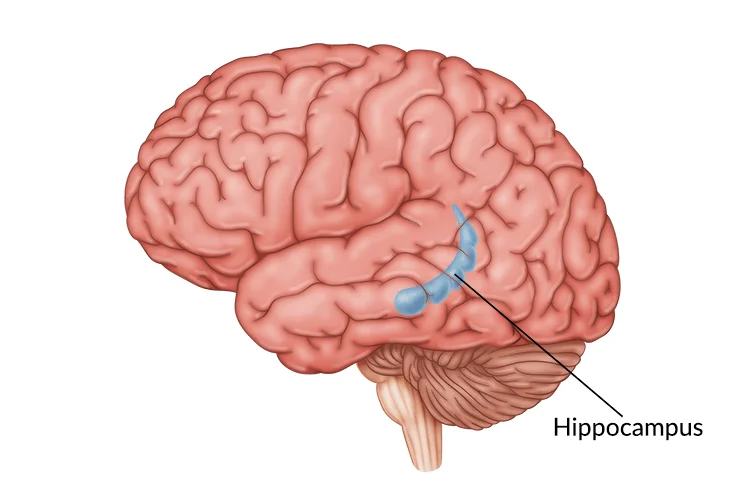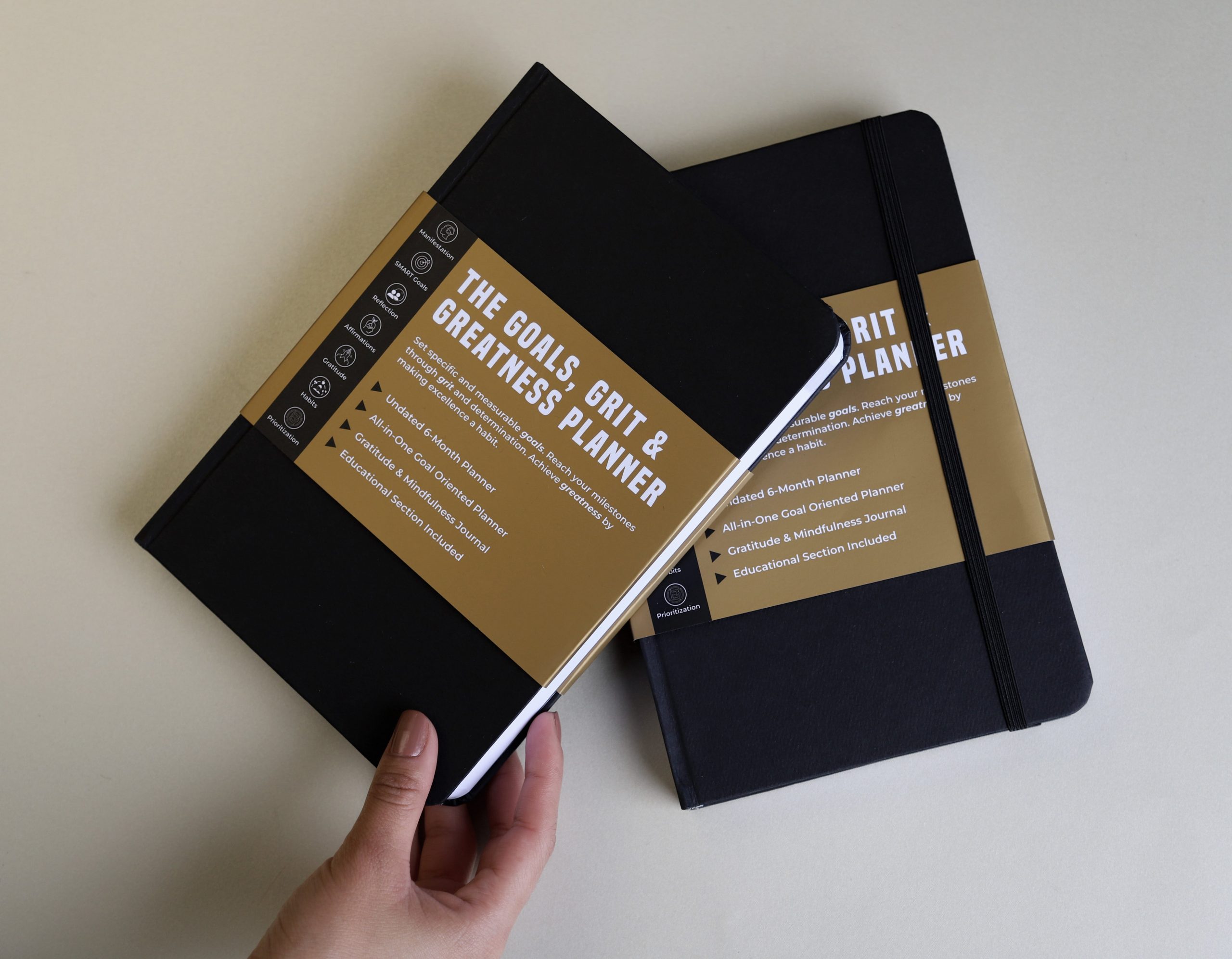Most of us know that if we want to achieve our goals, we need to write them down. Whether it’s a list of goals, a vision board, or other techniques, it’s important to put them in writing.
But why?
A Harvard Business School study reported that just three percent of respondents wrote down their goals. But they were three times more likely to succeed than a group with at least some plan in mind.
In fact, writing down your goals, the actions you take to achieve them, and then sharing these and your progress with someone, does optimize your chance of success.
Going further, to reinforce their intention and retention, your written goals should include photos and drawings.
A study by Mark Murphy, reported in Forbes, showed that people who very vividly describe or picture their goals are anywhere from 1.2 to 1.4 times more likely to successfully accomplish them
What brain science tells us about writing down goals
Neuroscience has provided compelling evidence that writing down our goals can be highly beneficial. Here are 5 reasons why:
1.Clarifies our thinking
When we take the time to put our thoughts into written form, we activate different areas of the brain that are responsible for attention, decision-making and reasoning.
This makes it easier for us to identify the habits and behaviors that are crucial to achieving our goals, and to develop clear strategies to reach them.
Writing things down improves not only recall, but the recall of the most important information.
When people take notes, they remember many more important facts and many fewer unimportant facts.
Neuropsychologists have identified that we have better recall of material we generate ourselves, hence why writing down our goals is key.
2.Engages the brain’s memory centers
Writing things down happens on two levels: external storage and encoding.
Research has found that the act of physically writing down information can help to improve our long-term memory retention of that information.
You store the information about your goal in a location (such as a Planner) that’s easy to access and review.
When our brain encodes information it does so in our hippocampus where it is assessed.
A part of your brain called the Reticular Articulating System (RAS) is designed to filter out “unnecessary” information based on your desires and fears.

From there, decisions are made about what gets stored in our long-term memory and, in turn, what gets discarded.
Writing improves that encoding process. And the more senses you can engage, the better.
The RAS is actually the central component that prevents your brain from being overwhelmed by the 2 billion bits of information passing through your sensory organs every second.
So, by seeing the images and text on our Vision Board or goals list each day means we are more likely to remember our goals since we’ve written them down.
Furthermore, seeing our goals written down enables your RAS to draw your attention and focus on the input that really matters.
It reinforces our commitment to them, making it more likely that we will follow through with our plans.
3.Provides a sense of emotional release
When we commit our goals to paper, we are often forced to confront the emotions and fears that may be holding us back from achieving them.
This can help to alleviate stress and anxiety and provide us with greater emotional clarity, which, in turn, can improve our ability to focus on our goals.
4.Increases our motivation and productivity
When we have a clear, written plan in place, we are more likely to feel motivated to take action and work towards those goals.
This helps to improve our productivity and keep us focused on the task at hand, reducing the likelihood of procrastination and distraction.
5.Provides us with a greater sense of fulfilment and satisfaction
When we succeed in achieving our goals, we experience a sense of joy and accomplishment that can be deeply satisfying.
This can help to increase our overall sense of well-being, and provide us with the motivation and confidence we need to continue striving towards our future goals.
Best practices for writing down your goals
Simply writing down your goals is not enough. Here are 5 tips for writing effective goals:
1.Be specific and use precise, measurable language
Goals need to be specific in terms of what you want to accomplish and when.
Use specific language to define your goals, including dates, deadlines, and milestones. Use specific indicators and metrics that allow you to measure your progress as you move towards your goals.
2.Create realistic goals
Goals that are too difficult or too easy can be demotivating.
Create goals that reflect your abilities and are challenging but achievable. Incorporate smaller goals that will help you attain bigger ones, and break them down into daily/weekly tasks.
3.Write down the reason why a goal is meaningful to you
Along with the goal itself, it’s essential to write down why it matters.
What do you hope to achieve by reaching this goal? How will it benefit your life, your family or your career?
By knowing why your goal is important, you will feel more motivated and determined to succeed.
4.Make it personal
Write down goals that align with your personal values and interests.
Goals that are not aligned with who you are can be frustrating and demotivating. You don’t want to lead an unhappy life just because you are trying to achieve something that does not make you happy.
5.Review and update goals regularly
Keep track of progress and frequently review and update your goals.
It will help you understand what’s worked, what hasn’t, and adjust your approach accordingly. As you make progress, adjust the goals to reflect your evolving priorities or situation. There’s no point in sticking to goals that no longer matter.
In summary:
Writing down goals requires careful consideration and execution. But it’s well worth it.
By being specific, realistic, and personal about your goals, while knowing why they matter, you can keep yourself accountable, track your progress, and stay motivated towards success.
The power of a Planner for your goal-setting
So will you write your goals down on yellow stickies, plain note paper, a personal diary or a whiteboard?
All of these may work for you but none of them are as effective as a Planner. That’s why I developed the comprehensive Goals, Grit & Greatness Planner.

It’s a complete undated six-month planner that also includes a gratitude and mindfulness journal. It adopts all of the best practices listed above, beginning with a self-assessment and Vision Board. Hera are the main features:
- Each goal detail page is organized by either personal or professional objectives. The goal summary follows with space for vivid descriptions.
- A range of icons is shown to visually identify which aspect of your life they pertain to.
- You are asked to state your purpose(s) to increase your perseverance toward these goals.
- You enter your desired results or milestones towards the goal with space for brief action plans to reach them.
- Six months of daily pages, each with sections for gratitude, affirmations, priorities and notes.
- A comprehensive educational section and a QR-code link to supporting explainer videos.
Following the principles above, and with consistency daily, you’ll be well-equipped to significantly increase your ability to create written goals. All while maximizing your brain’s effectiveness to store, encode and act on them to achieve greatness with your goals.








